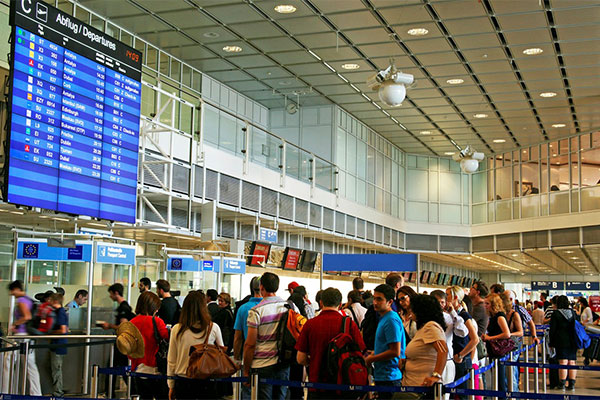
With questions being raised about the future of the Schengen Area in the face of challenges posed by the threat of terrorism and the unprecedented migration crisis, Airports Council International (ACI) EUROPE has warned of the “devastating” impact that the removal of the current agreement would have on major airports across Europe.
The borderless Schengen Area, which comprises 26 countries, allows travellers to move between member states without having to pass through border controls. In the words of ACI EUROPE, it has “played an essential role in the availability of efficient and affordable air services for European citizens”. An estimated 1.95 billion passengers used Europe’s airports in 2015, with around 1.2 billion of them using one of the 443 airports located within the Schengen Area. A return to pre-Schengen air travel would not only have a negative impact on the passenger experience, the association says, but will also force the costly redesign of airports across the continent.
“Schengen is part of the fundamental fabric of European air travel,” said Olivier Jankovec, Director General, ACI EUROPE. “For more than 25 years, the distinction between Schengen and non-Schengen traffic flows has conditioned and shaped the development of terminal facilities at airports. A reinstatement of air border controls between Schengen States is not on the cards – and it should never be as the impact would be quite devastating.
“This would require a difficult restructuring of airport facilities, involving investments easily reaching hundreds of millions of euros for each of the largest Schengen airports. The immediate impact would be unprecedented levels of congestion and flight disruptions, with potential spillover effects across the entire European airport network. Hubs would no longer be able to guarantee their current minimum connecting times between flights – and the result would be longer travel times, reduced choice for consumers and degraded connectivity for Europe. The impact would not just be felt on aviation, but also on tourism and the wider economy.”
Jankovec explained that ACI EUROPE fully supports the swift implementation of the European Commission’s agenda to reinforce Schengen’s external borders to safeguard its internal area of free movement. On this front, Schengen states must commit adequate resources for such tasks at their airports, he stated.
“It requires the deployment of additional police and border control staff at airports – resources over which airports have no control, but with whom we work in constant partnership,” he said. “With current border control staffing levels under stress at many airports, we are deeply concerned about whether more resources can be made available. Maintaining passenger service levels is already a challenge, and if we do not get adequate staffing, the situation will get worse. We hope governments will fulfil their state responsibilities.”







